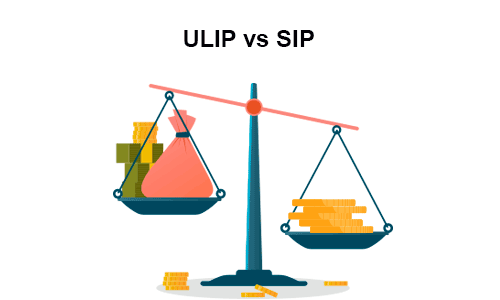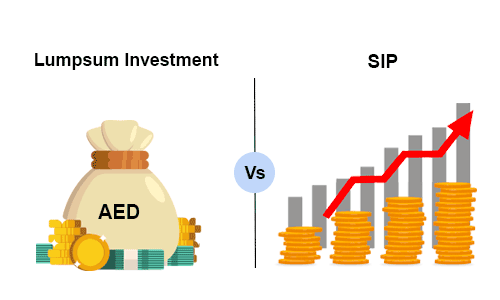How to Invest in Mutual Funds from UAE
Thousands of Non-Resident Indians (NRIs) look to India as a reliable investment destination, thanks to its fast-growing economy, strong equity markets, and simplified digital investing platforms.
In all of this, mutual funds have emerged as one of the best ways to invest money in India for NRIs aiming to benefit without directly managing stocks or real estate. Are you also an NRI living in Dubai or elsewhere in the UAE and wondering how to invest in Indian mutual funds from UAE?
Compare & Invest in Best Investment Plans in UAE -
Some of the best Investment quotes in UAE & Dubai are:
Why Should You Invest in Indian Mutual Funds from UAE?
By choosing India to invest in mutual funds from UAE, you gain exposure to diverse, professionally-managed portfolios with long-term growth potential.
| Reason | Details |
|---|---|
| High Economic Growth | India is a rapidly growing economy with strong government and private sector participation |
| Diversification | These funds allow you to invest across sectors, asset classes, and company sizes |
| Ease of Access | With digital platforms, NRIs can invest and monitor funds online from the UAE |
| Tax Efficiency | Certain mutual funds provide tax deductions under Section 80C |
| Low Entry Cost | Compared to real estate or direct equity, these funds need lower capital to start |
| Professional Management | Every mutual fund is managed by SEBI-registered experts |
Can NRIs Invest in Mutual Funds in India? |
|---|
| Yes, NRIs can invest in Indian mutual funds under the regulations set by the Foreign Exchange Management Act (FEMA). However, the investment must be made in Indian Rupees (INR) through specific types of bank accounts — NRE or NRO. |
How to Invest in Mutual Funds from UAE?
Wondering how to invest in mutual funds from Dubai or elsewhere in the UAE? Here's a simple roadmap —
- Open an NRE/NRO Account with an Indian bank
- Get your PAN Card (Permanent Account Number)
- Complete KYC via SEBI-registered intermediaries or fund houses
- Choose your investment platform (like Policybazaarinsurance.ae)
- Select the right mutual fund schemes (Equity, Debt, or Hybrid)
- Start investing via lump sum or SIP (Systematic Investment Plan)
- Track and manage your portfolio online from anywhere
Taxation on Mutual Funds for UAE-Based NRIs |
|---|
| The taxation for NRIs on mutual fund gains is similar to that for Indian residents. However, TDS (Tax Deducted at Source) is applicable on capital gains and dividends for NRIs. |
Let’s understand a few steps in more detail below.
What Type of Bank Account Do You Need?
To start mutual fund investment in India from UAE, NRIs must open one of the following —
1. NRE Account (Non-Resident External)
|
2. NRO Account (Non-Resident Ordinary)
|
How Can NRIs Complete the KYC Procedure for Mutual Fund Investments?
To invest in mutual funds from UAE, completing the KYC (Know Your Customer) process is mandatory for all UAE-based NRIs.
Here’s how you can go about it —
✅ 1. Fill and Submit the KYC Form
- Download and complete the KYC form with accurate personal details
- Submit it to a SEBI-registered intermediary (e.g., broker, mutual fund house, or KYC Registration Agency)
- You can send the form and documents via courier or post to the intermediary
- Some intermediaries also offer online KYC through video-based verification or e-KYC portals — check if your provider supports it
✅ 2. Submit the Required Documents
Along with the KYC form, you need to submit the following documents —
- PAN Card (mandatory for mutual fund investments)
- Passport copy (with relevant visa/residence permit pages)
- Recent passport-size photograph
- Overseas address proof (e.g., utility bill, Emirates ID)
- Indian address proof (if applicable)
✅ 3. Get the Necessary Documents Attested
All the submitted documents must be attested by one of the following authorities —
- Officials of overseas commercial banks registered in India
- Public Notaries or Court Magistrates
- Judges
- Indian Embassy/Consulate General in the UAE
⚠️ Self-attested documents alone are not sufficient — official attestation is mandatory.
✅ 4. Consider Using a Financial Advisor
As an NRI, navigating the KYC and investment processes can be complex. To simplify this, you can —
- Hire a financial advisor to guide you through documentation, KYC, and mutual fund selection
- Use platforms that offer end-to-end digital onboarding tailored for NRIs
Best Mutual Fund Options for NRIs from UAE
Here are some popular mutual fund categories available for NRIs —
| Type | Best For | Examples* |
|---|---|---|
| Equity Funds | Long-term wealth creation | SBI Bluechip Fund, Axis Growth Opportunities |
| Debt Funds | Steady income, low risk | ICICI Prudential Corporate Bond Fund |
| Hybrid Funds | Balanced approach | HDFC Hybrid Equity Fund |
| ELSS Funds | Tax saving under 80C | Mirae Asset Tax Saver Fund |
✅ NRIs can continue their existing SIPs initiated while they were resident Indians. Just update your status and bank account details with the AMC.
*The information is for reference only and does not constitute investment advice
Important Points to Remember
- FATCA Compliance: NRIs from the US/Canada may face restrictions — many AMCs avoid dealing with US/Canada NRIs due to the Foreign Account Tax Compliance Act (FATCA) regulations
- In-Person Verification (IPV) may be required — this can be done via video KYC or by appointing a Power of Attorney (PoA) in India
- Self-certification of KYC documents is mandatory
- Tax implications in the UAE: While the UAE currently has no personal income tax, NRIs must report Indian income as required
Need Help Getting Started? You can always consult financial advisors or trusted platforms that offer end-to-end support for mutual fund investment in UAE.
Start Investing in Indian Mutual Funds from UAE Today!
How to invest in mutual funds in UAE is no longer a mystery — it’s simpler than ever with online tools, digital KYC, and growing financial awareness among NRIs. Whether you’re in Dubai, Abu Dhabi, or Sharjah, you can confidently build wealth by investing in India’s growing market.
By choosing to invest in mutual funds in UAE, you can benefit from strong returns, diversification, and long-term financial stability — all while staying globally connected to your home country’s economic rise.
Frequently Asked Questions
Most mutual funds have no lock-in, although ELSS schemes have a mandatory 3-year lock-in. Always check the Scheme Information Document (SID) for details.
Yes, NRIs from the UAE can invest in Indian stocks through a Portfolio Investment Scheme (PIS) account under repatriation or non-repatriation basis.
Yes, NRIs in UAE can invest directly through AMC portals using their NRE/NRO accounts.
Yes, mutual fund gains are taxable in India based on the fund type (equity or debt) and holding period. Tax is deducted at source (TDS) for NRIs.
No, the UAE does not impose capital gains tax on individuals. However, gains may be taxed if earned through business activities.

More From Investment
- Recents Articles
- Popular Articles






.jpg)











.jpg)
.jpg)
















